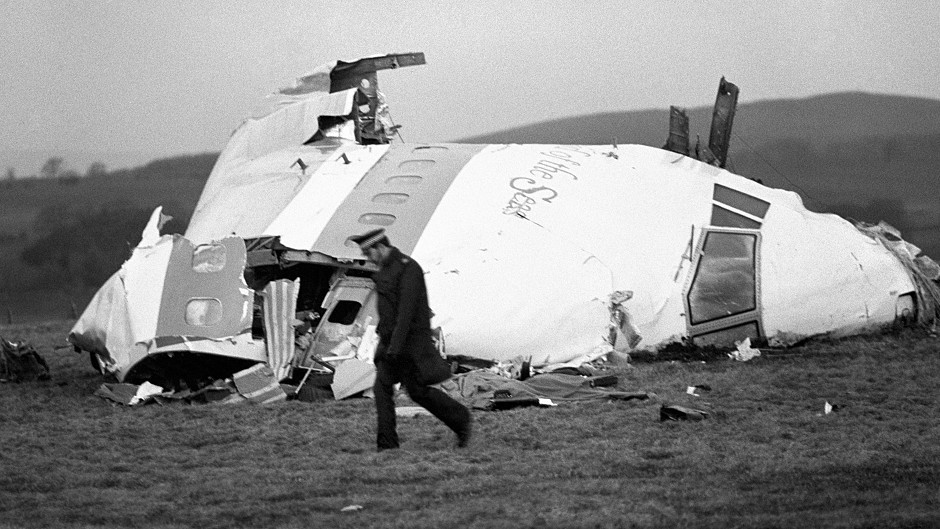In a few weeks’ time, the media will be full of stories marking the 30th anniversary of the worst terrorist attack ever perpetrated on Scottish soil. The downing of Pan Am 103 on December 21, 1988, killed 270 people – 243 passengers on the flight, 16 members of the plane’s crew, and 11 Lockerbie residents.
Only one person, Abdelbaset al Megrahi, has ever been convicted of taking part in the bombing. He was later released on compassionate grounds by the Scottish Government and has since died. Many involved in the investigation believe that even if he was involved it was in a minor role. The result is that there has been no justice for those killed and no closure for the relatives of the victims.
I have a personal interest in the case. On the night of the bombing, I was the newly-appointed chief reporter of a newspaper office in Edinburgh. When word came through that a plane had crashed in the Borders – that was the original belief – I rounded up two colleagues, and the three of us headed for the incident.
I have to confess that we used some subterfuge to get near the town, as the motorway was closed and there were long tail-backs on the approach roads. Even from a few miles distant, however, the smell of burning fuel was heavy in the air, and in the distance, we could see a glow in the sky. Police officers were obviously tied up in the town, and it was left to an AA man to direct traffic away from the motorway. I showed him my press card and lied to him that the police had told us to come this way. He waved us onto the motorway with a warning, “Drive south on the northbound carriageway. There shouldn’t be anything coming the other way, but put on full beam just in case…”
The result was that a few minutes later we were standing gazing into what looked like the bowels of hell, on the edge of the huge crater at the side of the motorway where the fuel-laden wings had landed, exploded and were still burning. The rest of the night was spent speaking to witnesses, attending press conferences in the town and sending regular updates to head office from a telephone box – no mobiles in those days, remember – before heading home at seven in the morning.
Lockerbie then became a major part of my journalistic life, as I followed the events of the subsequent years. I attended the press conference where the then Lord Advocate announced the charges against Megrahi and his co-accused Khalifa Fhimah, I was at Camp Zeist in Holland when the two accused flew in for trial, and I was at Justice Secretary Kenny MacAskill’s press conference when he announced he was to release Megrahi.
In between these events were a number of interesting asides. I knew the late MP Tam Dalyell, who campaigned long and vociferously that Megrahi was innocent. On one occasion, after there were reports in the American media containing details of documents relevant to the inquiry which were available under US freedom of information, but which we were unable to see in Scotland, I asked Tam if there was anyone he knew who could help. “Why don’t you call the US embassy and ask for John Doe,” he said. Even at this distance in time I’m reluctant to disclose the real name he gave me. I asked who this was. “His official title is First Secretary at the US embassy. His real job is head of the CIA in Europe. No-one knows more about the Lockerbie bombing investigation.”
I called the embassy, was put through to the man in question and he asked to see me before answering any questions. Next day I was in London facing the head of the CIA for Europe. He obviously wanted to check out that I was a real journalist and that my interest in Lockerbie was genuine. After a long chat he agreed to arrange for all these documents to be forwarded to me from the US State Department. They were the source of a number of stories in the subsequent weeks.
Additionally, it appears I was also put on a US Government list of “interested journalists”, as every time a documentary on Lockerbie was due to be screened on TV, I would receive a press release from Washington rebutting the claims the programme was expected to make.
When the Lockerbie media storm begins again in a few weeks, I’ll be able to reflect on my own coverage of the event and its consequences. Most importantly, I’ll reflect on the fact that not one of the main players in the attack, whether in Iran, Syria or Libya, has ever been brought to justice. Nor at this distance in time are they ever likely to face a criminal court in Scotland.
And that is a tragedy for the Scottish, UK and American justice systems.
Campbell Gunn is a retired political editor who served as special adviser to two First Ministers of Scotland

